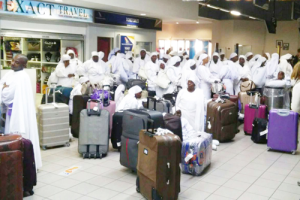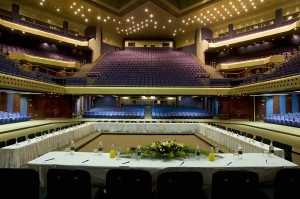Religious tourism is big business and a booming niche market. It is the single fastest growing market segment in the global travel industry. This offers an opportunity for the tourism industry to take advantage of religious holidays and Religious Travellers.
Now that one of the most important holidays in the religious calendar has come and gone, the question is, what opportunities did the local tourism industry take advantage of? What steps, if any, have been put in place to target, secure and harness this growing niche market?
Business opportunities that come with Easter cannot be underestimated. With the right approach and appropriate marketing strategies, the potential for development and further expansion of domestic tourism to previously untapped market segments is limitless. This offers an opportunity to boost tourism sectors such as conference centres for religious events. Only through collaboration between the Tourism Ministry, local businesses and religious organizations can the initiative be successful.
Religious Tourism
Religious travel is not a new phenomenon. It is an ancient form of tourism that venerates a culture of spirituality through pilgrimage, camp-meetings, missionary, retreats and other religious events. The link between tourism and religion as a cultural phenomenon is a growing trend that Zimbabwe and Africa needs to recognize, embrace and take advantage of particularly if domestic tourism is to expand to other sectors previously not considered viable target markets. While other countries are already ahead, it is not too late to start preparing for the future by ensuring that appropriate infrastructure and resources targeting this niche market.
Growing Demography: New Market
Like most of Africa, Zimbabwe is witnessing an increased growth of a different kind of demography. Religious groups are the fastest growing demography in the country exemplified by new age mega churches that have outgrown and now outnumber old traditional churches.

Appropriate infrastructure and resources ensure that religious events stay local, not exported. Picture: Members of Johane Masowe Apostles
The diversity of religious denominations together with a renewed interest in cultural traditional forms of spirituality offers a unique opportunity for the tourism industry to create strategic partnerships Alliances with religious organizations (or groups), local businesses and communities are necessary for the development of new strategies, infrastructure and allocation of appropriate resources. This should be done in order to accommodate the changing nature of tourism while aligning the needs of the market to the product.
Religious Tourism: Things To Consider
Although religious travel is one of the the oldest forms of tourism, it still remains largely unrecognized in Africa. One common mistake by industry insiders is an assumption that the market segment is exclusively religious, a costly mistake which has perpetuated the exclusion of the fastest growing market segment in the entire industry. To avoid further mistakes, we have listed below are some important things to consider regarding this brand of tourism.
- Religious tourism is big business and a booming niche market. The global religious travel industry is the fastest growing segment in the overall travel industry with group travels the key.
- Do not assume that Religious Tourism is a single market segment. Religious Travellers are diverse in belief systems, spirituality and interests. These include the religious faithful, non-religious, the curious, the skeptical including people of all ages and nationalities seeking spiritual guidance or self-awareness.
- Not everyone can handle this niche market. Know your market. A bit of appreciation and understanding of religion and spirituality helps as sensitivity is key when dealing with this market. Pay attention to special travel needs, prohibitions, types of activities, food or diet, type of music, important (religious) calendar dates and other special needs.
- Religious Travellers tend to be less prone to volatile economic conditions. These are loyal, devoted travellers travelling as part of a religious obligation and will not cancel. They are devoted to the mission, invested in the journey and anticipated spiritual experience. The excursions can provide a sense of relief in the financial and economic activities to the affected local tourism economy and its communities.
- Connect local secondary industries to Religious Tourism. Apart from standard sectors such as transportation, accommodation, conference centres as well as food & beverage (restaurants), it is imperative to include local cultural community centres, arts and entertainment in order to satisfy different spiritual needs.
- Develop local community-based Religious Tourism. With a growing religious demography, local tourism authorities should encourage, promote and support different locales to create community-based religious tourism. For instance, family events, religious tours, camp-meetings, retreats and revivals, inter-denominational competitions (music or plays), Bible Studies, religious seminars and conferences.
Although religious tourism is often perceived as targeted towards the faithful who gather for fellowship or other spiritual purposes, it is not limited only to people of a religious disposition. Whether it’s spirituality or an excursion to explore the cultural religious traditions of your ancestors, there is no doubt that many are choosing to combine their travel experiences with a certain kind of spiritual bent. This is the opportunity to grow and expand domestic tourism.
Ready to explore? Unleash the wanderlust in you! Explore. Experience. Discover Zimbabwe!



